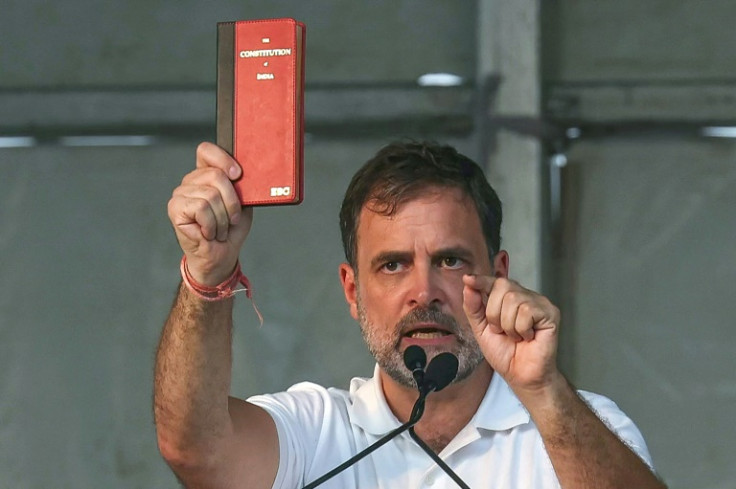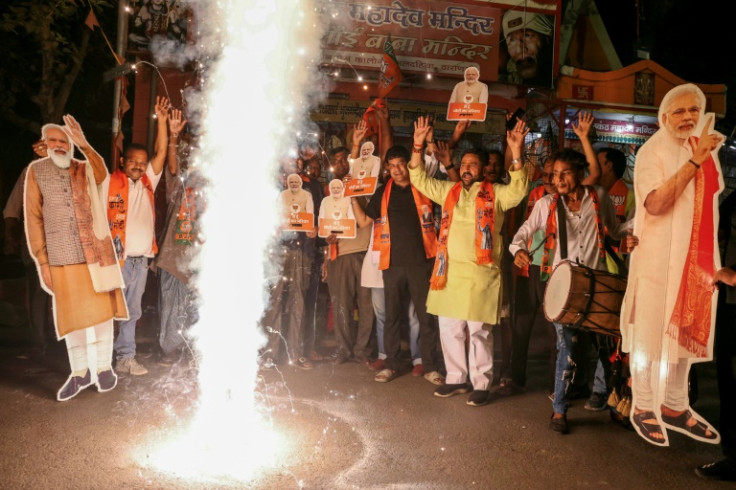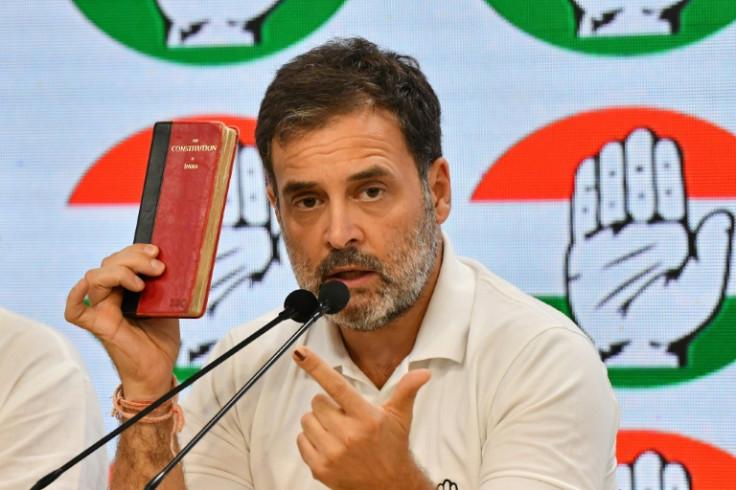
Once dismissed as an "empty suit", perennial Indian premier-in-waiting Rahul Gandhi emerged from his third consecutive election defeat with his reputation enhanced and his party back from the political wilderness.
But analysts are divided on whether the 54-year-old -- a scion of a dynasty that has already given India three prime ministers -- is ready for the next battle he faces.
Already the leader of the opposition to Hindu-nationalist Prime Minister Narendra Modi in all but name, Gandhi now takes on the formal position in India's parliament.
Congress party general secretary K. C. Venugopal said Gandhi would be "a bold voice for the common people" and ensure the government "is held firmly accountable at all times", he told reporters in a statement late Tuesday.
"It's a huge thing what he has achieved in this election -- he's been able to get the masses to take him seriously," Sugata Srinivasaraju, an author of a book on Gandhi, told AFP.
"But is that sufficient to be a good leader of the opposition inside the parliament? That is a big question."
Modi's first two terms in office saw landslide wins for his Bharatiya Janata Party (BJP), allowing his government to steamroll laws through parliament with only cursory debate.
Dozens of bills were pushed through the legislature hours after they were introduced, including a contentious and far-reaching overhaul of India's criminal justice code last year.
Unable to stymie the government's legislative programme, Gandhi and Congress were reduced to staging regular symbolic walkouts of the chamber and demonstrations outside parliament.
With the BJP now reliant on coalition allies to govern, and Congress nearly doubling its seats in parliament, the dynamics of Gandhi's role will necessarily change.
His new post entitles him to take a role in the composition of parliamentary committees and sit on selection panels for appointing some of India's most powerful civil servants.
But Srinivasraju said it remained to be seen if Gandhi could evolve from Modi's chief gadfly outside parliament to an effective opponent within its walls.
"He has not been a great speaker inside parliament. He has not been able to sway the crowds," he said.
"From that perspective, we don't know if Rahul is really ready."
Gandhi is the son, grandson and great-grandson of former prime ministers, beginning with Indian independence leader Jawaharlal Nehru.
For that reason, he was seen as India's leader-in-waiting when he first entered parliamentary politics in 2004, but he struggled for years to shed his image as an insubstantial and entitled princeling.
Leaked US embassy cables disparagingly referred to him as an "empty suit", and Modi dismissed him as a dynast more interested in luxury and self-indulgence than fighting to helm the world's biggest democracy.
For much of the past decade, many voters agreed with that sentiment.
His stewardship of Congress -- once India's dominant party with a proud role in ending British colonial rule -- looked hapless against Modi's seemingly unassailable rule.
"Gandhi missed several opportunities to shape up as an effective parliamentarian and politician," political commentator Rasheed Kidwai told AFP.
The seeds of his turnaround were sown in 2022 when he embarked on a cross-country walking tour inspired by his unrelated namesake, independence hero Mahatma Gandhi, to hear the concerns of ordinary people.
His journey gave him a gravitas that had previously eluded him, and his colleagues credited it with helping reinvigorate the party, delivering an election result that defied exit poll forecasts of another landslide BJP win.
Gandhi also stayed unruffled through the several ongoing criminal cases arrayed against him, which he and supporters accuse the government of orchestrating to eliminate him as a rival to Modi.
Last year, he was briefly disqualified from parliament after a conviction for criminal libel in a case brought by a BJP member, and weeks before this year's election, Congress had its bank accounts frozen as part of a running income tax probe.
Having pierced Modi's aura of invulnerability and shrugged off adversity, Kidwai said Gandhi's new post would give him the opportunity to capitalise on his newfound public esteem and establish himself as an alternative prime minister.
"Taking up this position is going to do a lot of good for him," he said.
"People who didn't take him seriously will now start judging him with interest."










